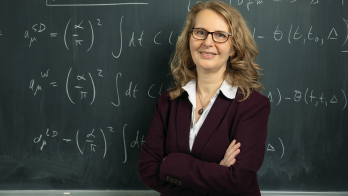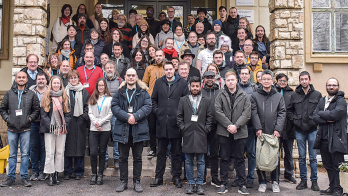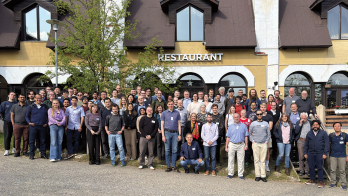While quantum chromodynamics (QCD) is considered to be the theory of strong interactions, it is very difficult to use it to make predictions of processes over distances of the order of the size of hadrons. The problem is that the coupling, which determines the strength of the interaction, becomes so large at such “large” distances that it is likely many gluons participate and the calculations diverge. So for the time being large-distance QCD remains one area where experiment can play a leading role and where new and unexpected phenomena may be discovered.
To consider some of the experimental options for the future in this area, Fermilab is hosting a workshop on “The Future of QCD at the Tevatron” on 20-22 May 2004. Its purpose is to evaluate the status of QCD in 2009, when the CDF and D0 experiments at the Tevatron are currently scheduled for completion. The Tevatron is at present the world’s highest energy hadron collider, where CDF and D0 are probing QCD at the smallest distances (about 1/10,000th the size of the proton). This frontier will be taken over in 2007 by the Large Hadron Collider (LHC), but many studies, particularly of large-distance QCD, will remain to be done.
The workshop will consider such questions as: what desirable studies are not being done but could be added to the present research programme? What studies will be complementary to the QCD physics that will be performed at the LHC and elsewhere? What can (and cannot) the future Tevatron experiment BTeV, scheduled to start data taking at the Tevatron in 2009, do? All these questions are to be addressed, and it could provide the basis for developing a case for additional experimentation beyond 2009 at the Tevatron, perhaps using CDF or D0 detectors with modest upgrades.
Further reading
For further information, see: http://conferences.fnal.gov/qcdws.








